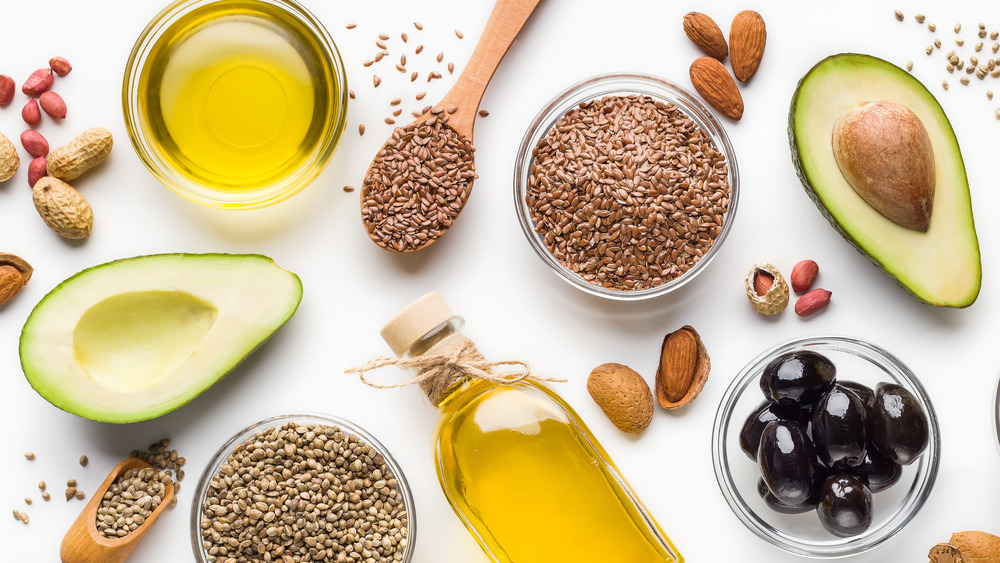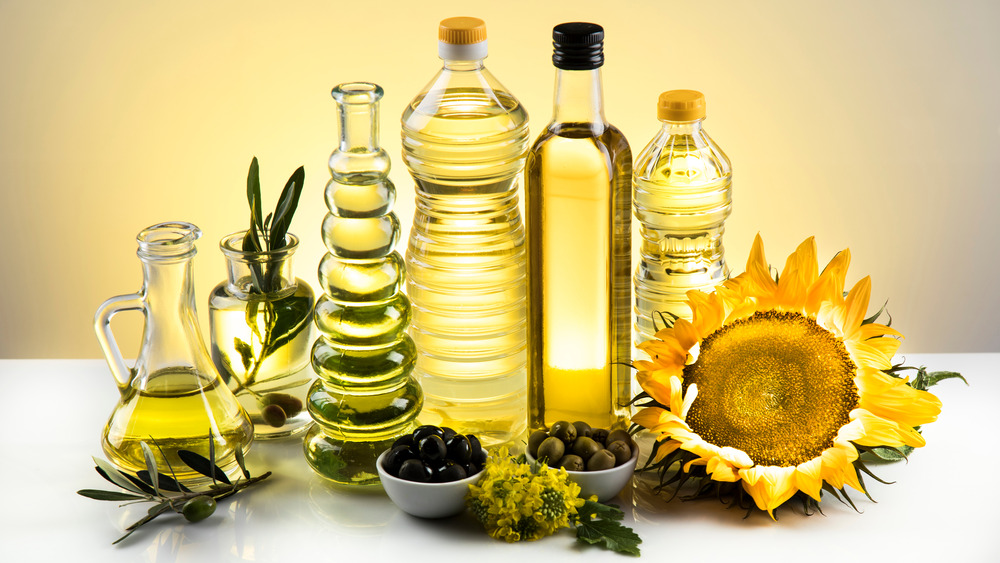Here's The Nutritional Difference Between Olive Oil And Avocado Oil
If you've shopped for olive oil at the grocery store recently, you might've noticed another oil variety that's earned a spot on the shelves: avocado oil. So, is there really a difference between the two? The short answer: yes, but it's very slight.
First, let's talk about the varieties of oil you can buy. For example, there are two different kinds of avocado oil: refined or unrefined. Refined is usually extracted from the fruit via heat or chemicals, while its unrefined counterpart is cold-pressed so none of its natural flavor or color is lost. Similarly, olive oil is made from pressed olives and can be purchased as pure, extra virgin, or virgin olive oil. While virgin and extra virgin are extracted via cold-pressing, pure olive oil has usually been extracted via chemicals or heat and contains a mixture of cold-pressed and refined oil, according to Healthline.
Regardless of which kind of oil you choose to buy, you can feel confident knowing that they're both versatile, heart-healthy oil options; they're also rich in antioxidants and healthy fatty acids, which promote lower blood pressure levels and reduce inflammation. Plus, 1 tablespoon of each kind of oil shares the same amount of calories, saturated fat, and monounsaturated fat.
How they're different
So, we get that the two oils are similar — what makes them different? For starters, olive oil has 0.5 less grams of polyunsaturated fat than avocado oil, as well as 10 percent more of the daily value of vitamin E.
However, besides those small differences, things only start getting really different when it comes to their smoke points. "Avocado oil has a higher smoke point [482 degrees Fahrenheit] than olive oil [375 degrees Fahrenheit], meaning that it doesn't burn and smoke as quickly," notes Healthline. So, if you're trying to decide which oil to use when cooking at high temperatures, avocado oil will probably fare better.
If you're looking for the healthiest option, Dr. Rajsree Nambudripad, a California-based integrative medical specialist, told U.S. New & World Report that the quality of the oil definitely matters."The health benefits of both oils also varies depending on the quality of the product and the refining process," he explains. "The refining process of the oils can sometimes strip them of a lot of the nutrients and antioxidants, so it's best to buy higher quality oils sold in dark glass bottles."

